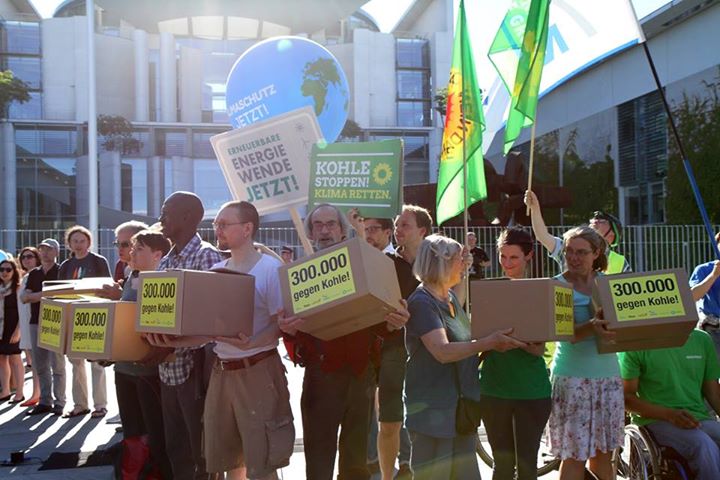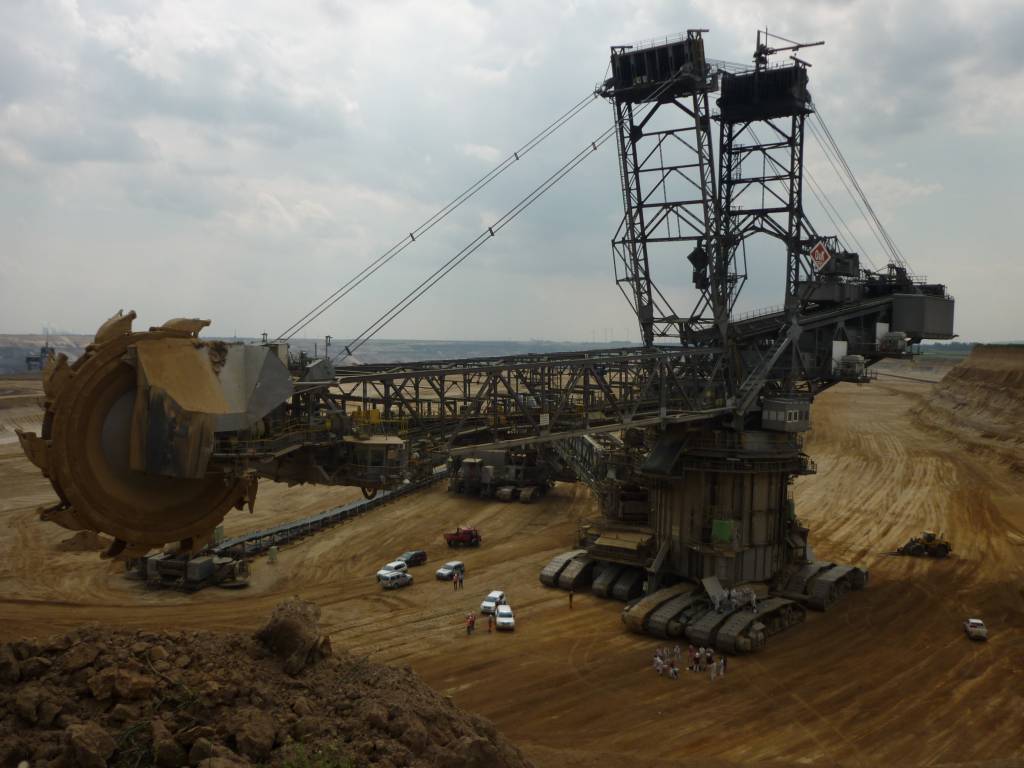The good news is: The decision by the German government to mothball some of the oldest lignite power plants is yet another sign that coal is on its way out.
The bad news: It doesn’t go nearly far enough. In fact, the government caved in to big polluters and went with a watered-down proposal.
Instead of putting a levy on CO2 from the most polluting power plants, a measure which scientists and economic experts described as the minimum needed to meet Germany’s climate targets, the government decided to go with an ‘alternative’ measure proposed by the big polluters and mining union, which won’t achieve the same emission cuts. Instead of a measure that would have cost the biggest polluters millions, they went with an option that is estimated to cost taxpayers billions.
For the climate movement, the decision makes it clear once again that while coal is on its last legs, the industry’s influence on the political process is so enormous that it can get its way against any economic sense and against the will of the majority of people who want a coal phase-out.
We need to mobilise to dismantle the industry’s influence and the anti-coal movement is growing stronger than ever. Last night, just before coalition partners decided to scrap the coal levy, 500 people gathered outside the Chancellery in Berlin to deliver well over 300,000 signatures against coal.

On 1 July, 500 people gathered outside the German Chancellery to deliver over 300.000 signatures against coal.
This summer, grassroots groups are planning to take the anti-coal fight in Europe to the next level. Judging by last night’s decision to ignore the will of the majority of Germans to phase out coal and cave in to coal industry lobbyists, it is more essential than ever that we take action together to end coal.
From 14-16 August, hundreds of people from across Europe will come together to literally stop the digging, by blocking the world’s largest diggers at the source — the Rhineland coalfields which are Europe’s biggest source of CO2. Ende Gelände will be an iconic, peaceful confrontation and an unprecedented act of civil disobedience against coal in this decisive year for the climate. You don’t want to miss this!

The giant coal excavators in the Rhineland coal mines are the the world’s biggest land vehicles. Credit: ausgeCOhlt